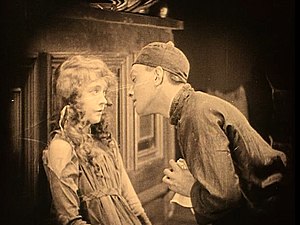A colleague asked for a copy of the instructions I provide for the paper assignment. I actually have a booklet laying out some guidelines for writing about film as well as some material on the various critical models they are to select from, which is where the basis of the research project (which includes a research journal, a brief scene analysis essay, an annotated bibliography, and the research paper itself) is explained. Here is the introduction to the project:
The Rules of the Game
in Scholarly Film Analysis
While you may have analyzed films or literature in the past,
doing so with a model is probably new to you.
Analyzing any work of art through the lens of a critical approach
requires that you accept a few basic ideas; writing about your analysis for a
scholarly audience requires that you follow a few guidelines.
Premises
1: All works of art make some kind of comment
about the world (era, culture, etc.) in which their creators live.
2: All films are works of art (you could add a
“more-or-less” qualifier to this).
3: Every aspect of a
work of art is the result of purposeful decisions by its creator (i.e., there
are no accidents). Therefore, we must
always ask why the creator has done a particular thing and what it might
mean. In the case of film analysis, we
refer to the creator in the plural, as “filmmakers.”
Definitions
1:
A critical approach (AKA critical or theoretical model or
paradigm) is a body of ideas contained in or implied by a theory. This will be your main topic to research, NOT
the film, although you may find some relevant material about the film.
2:
A theory is simply an explanation of some phenomenon.
3:
A good theory is an explanation that a.) covers all the
known facts and b.) can be used to predict future occurrences of a phenomenon.
4: The literary
present tense is a convention of academic writing, where a scholar writes
about a work of art as if it is happening at the present moment, as shown in
the following sentence: “The filmmakers
of Spider-Man make a distinction between the daylight New York
City of Peter Parker and the nighttime world of Spider-Man.”
Guidelines
1: The audience for
your essay is a scholarly one, which means that they are already very familiar with the film you are
discussing. Therefore, there is no need
to summarize the plot of the film at any length beyond a single sentence.
2: The body of your essay should begin with a
thorough discussion of the critical paradigm and why it is useful in analyzing
this particular film. You will be
drawing on outside sources here to establish your authority on the model.
3: You will need to
focus on two or three scenes in the film in order to produce an analysis that
has depth, so question everything in the scenes and apply the model to it
all.
4: Although you are
working on a few scenes, it is perfectly acceptable and appropriate to refer –
briefly – to other parts of the film, as needed, to contextualize your discussion. For example, if you were to analyze the scene
in Finding Nemo where Marlin is obstructing Nemo’s efforts to prepare
for his first day of school, it would be useful to consider the later scene in
the dentist’s aquarium in which Gill talks Nemo through sabotaging the pump,
since it is a mirror scene (i.e., one that basically repeats an earlier
sequence with a few alterations that change the way the earlier scene should be
viewed). In this case, you might prefer
to use the later scene as your second scene.
5: As this is not an
evaluation or a review, your audience DOES NOT CARE whether you think the film
is good or bad, nor do they care about the actors who are playing the
roles. It is rare to need to make any reference
to an actor; we usually only care about the character. Refer to characters by their names,
not by the names of the actors playing them, and never succumb to the
temptation to talk about them as if they are real people.
but the assignment for the essay itself is this:
Project 5- Documented Argument Essay
MLA Format
2500-3000 words, worth 250 points (25% of your course
grade).
Draft due 7/9, final revision due 7/16
The final product of your research efforts is a documented
argument essay, that is, an essay
that draws on outside authorities, documented in MLA format, to persuade the
reader of the validity of the claim you are making in your thesis statement,
which concerns an academically significant topic. This is the traditional scholarly research paper. Chapter 9 in Bullock has a good discussion of
argument essays, and we will look at it in class. Keep in mind, however, that the traditional
research paper also includes a survey of the applicable secondary literature,
which is not covered in that chapter.
The Draft, (two copies due 7/9): This should not be a rough or first draft, but rather your final, complete,
word-processed draft of the entire essay (no
introduction, but the thesis, body, conclusion, Works Cited page, any
appendices), following the requirements below, that has seen some revision. I will be giving you revision instructions on
7/11. Warning: you will NOT be allowed
to submit a final revision without having submitted a draft on 7/9! If you will not be in class on 7/9, get a
copy of the draft to me before that
date.
Your grade for the final revision is partially dependent on
how well you execute the revisions you have been instructed to perform. Ignoring the instructions may result in a failing
grade for the project.
Final Revision,
(due 7/13): A thoroughly revised
persuasive essay that demonstrates the validity of a claim through the use of
evidence (produced from an analysis) and logical arguments. It must meet the following requirements in
order to be accepted for a grade:
1. A
specific thesis statement, derived from your analysis of a film, that declares
your critical approach and makes an arguable claim.
2. Sufficient
background information to make the approach being taken understandable, as well
as a survey of the scholarly literature surrounding this approach.
3. Direct
quotations. You are allowed no more than
2 long/block-format quotations in the entire essay, but you may have as many
quotations of fewer than 3 lines as are necessary. You must draw these from at least 2 books and 4 academic
journal articles, introduced as to author and authority, integrated into your
prose, fully discussed, and accurately transcribed.
4. In
support of your claim, a well-developed argument that appeals to logic (rather
than to emotion, e.g.), considers counterarguments, and contains no serious
logical fallacies.
5. A
logical organization with transition sentences.
6. As
polished prose as possible, using Standard Edited American English, carefully
revised for clarity and readability, polished and proofread to the very best of
your ability.
7. Complete,
accurately formatted (MLA) documentation of any ideas, information or material
from outside sources.
















